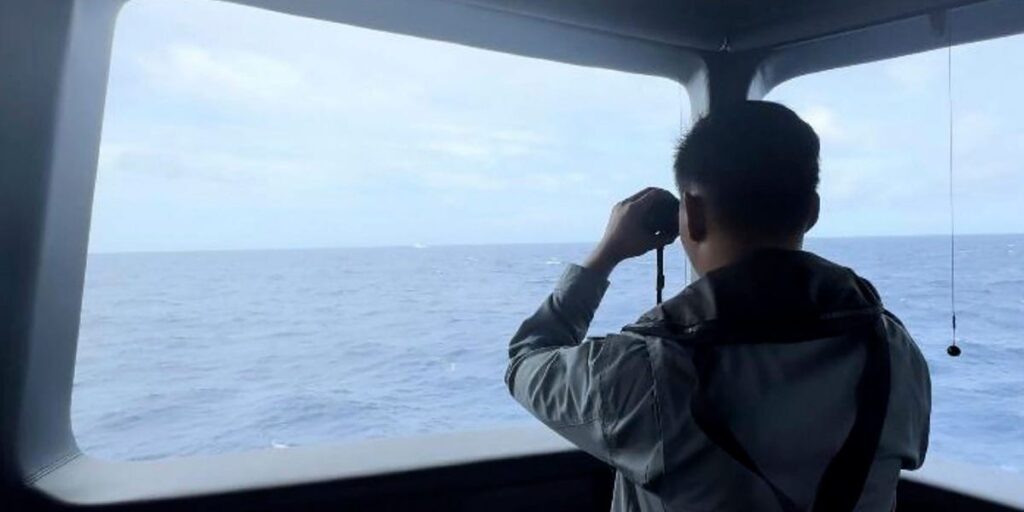- Indonesia said it drove a Chinese coast guard ship out of its waters in the South China Sea.
- It said the Chinese ship disrupted an Indonesian oil and gas company surveying the waters.
- China claims almost the whole sea as its own territory, which its neighbors and the West dispute.
Indonesia said it deployed two vessels and an aircraft to expel a Chinese ship from contested waters in the South China Sea.
The Indonesian National Armed Forces said its Maritime Security Agency’s command and control center detected China’s coast guard ship at the southern edge of the South China Sea, on Monday.
It said the Chinese ship disrupted survey work — often used to help locate oil and gas reserves beneath the seabed — by Indonesia’s state-owned oil and natural gas company PT Pertamina.
The interaction is another turn in a yearslong dispute over who owns the South China Sea, and gets to exploit its resources.
China has staked out an aggressive claim to almost the whole sea, which its neighbors and most Western countries reject.
The rival claims have been playing out in often-violent encounters between Chinese and other ships.
In Monday’s run-in, Indonesia said it dispatched a patrol ship dispatched to warn the Chinese ship away via radio.
It said the ship insisted the waters were Chinese, prompting Indonesia to send a navy ship and an aircraft to the area.
“Together, the two Indonesian patrol ships carried out shadowing and succeeded in driving the CCG 5402 ship out of Indonesia’s jurisdiction,” it said.
Shadowing means following another ship from a distance, a way of pressuring a rival vessel without direct confrontation.
Indonesia’s Maritime Security Agency shared aerial footage of the operation on Wednesday, which it said showed the incident.
Neither side immediately responded to requests for comment from Business Insider. As of early Thursday, China had yet to issue any public statement on the encounter.
The incident escalates the dispute over the South China Sea, and highlights the richness of its resources.
It is home to an estimated 3.6 billion barrels of oil and other liquids and 40.3 trillion cubic feet of natural gas.
China’s claims overlap with neighboring countries, including Indonesia, Taiwan, Vietnam, Brunei, Malaysia, and the Philippines.
An encounter in June between the Philippines and China turned violent, escalating into a physical fight involving bare fists, knives, and swords.
The US Navy has made a point of operating in the South China Sea, sailing in areas it regards as international waters.
Malaysia and Vietnam are also pursuing oil-and-gas projects in the South China Sea, and running into Chinese opposition.
The Center for Strategic and International Studies’ Asia Maritime Transparency Initiative assessed in March that the China Coast Guard in 2023 patrolled near Vietnam’s Vanguard Bank oil and gas operations for 221 days and near a major cluster of Malaysian oil and gas operations for 338 days.
The encounters so far have stopped short of a true naval confrontation, which risks escalating into a devastating war.
A conflict in the South China Sea — a critical trade route estimated to carry one-third of global shipping — could result in a 10-33% loss in GDP for Taiwan, Singapore, Hong Kong, Vietnam, the Philippines, and Malaysia, according to a 2020 working paper by the US National Bureau of Economic Research.
Read the full article here
















